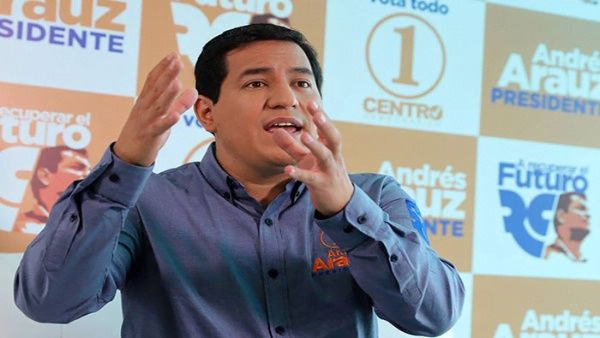
Arauz denounced that Lasso committed crimes of perjury, tax evasion, attempt against democracy and fraud. | Photo: EFE
Quito, October 6 (RHC)-- Former presidential candidate and Ecuadorian economist, Andres Arauz, said Tuesday that President Guillermo Lasso must resign immediately or be removed from office in view of the need for democratic restoration in Ecuador and after his involvement in the scandal associated with tax havens -- the "Pandora Papers" -- was revealed.
"We are shocked by what happened. Ecuador is stained internationally, and the face of the head of state is circulating around the world for appropriate shameful reasons and unethical behavior," said Arauz.
In this sense, he gave four fundamental reasons why Lasso should be prosecuted: "To attempt against the nation's democracy; tax evasion, something inadmissible in his condition as president; to exercise front man with his own relatives; and to commit perjury after swearing not to have properties and lying about his companies and assets in tax havens," he added.
The Ecuadorian economist asserted that the head of state patented a series of contradictions and inconsistencies related to his assets. "He has lied on several occasions to the country; one of them linked to the fact that his fortune is the result of his work as president of Banco de Guayaquil, after stating that it was not pursuing to evade taxes," he asserted.
Arauz added that Lasso also committed perjury when he affirmed that his patrimony was public and was in Ecuador, when it is really invested abroad in other countries that constitute offshores. At the same time, Arauz said that with his unethical conduct, Lasso is promoting money laundering.
In this regard, he criticized the reforms to the Tax Law promoted by the Executive to modify the Business Opportunities Law, whose purpose was none other than to profit in this way by trying to set the tax on companies or assets located abroad at five percent; a resource that ultimately was not approved by the Legislative Assembly.

